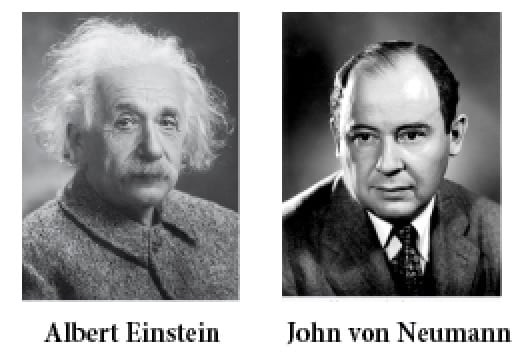
Although Einstein never sat for an IQ test, he probably would have scored very high, but not as high as some, because his kind of intelligence is not captured in a series of 45-minute IQ tests. While IQ tests provide a good measure of certain cognitive skills, they do not measure the long-term problem solving skills that come with concentration, focus and the incubation of ideas during subconscious rumination. (A good example of this difference is evident in the difference in proficiency in speed chess and regular chess. Those who excel at one of these do not necessarily excel at the other.)
However, if we change the question and ask, “Who was more intelligent than Albert Einstein?” we must then define what we mean by “intelligence”. Einstein was superbly gifted in abstract conceptualization and his greatness resided in his ability to step outside conventional thinking and challenge basic assumptions about the the nature of force and motion–what is sometimes referred to as “thinking outside the box.” Once he made new assumptions, he applied his capacity for abstraction to formulate his theories in mathematical terms. What he achieved was profound, but what made him an icon for genius were the widespread implications of his discoveries. By formulating E = mc^2, Einstein unlocked nuclear energy and in formulating his General Theory of Relativity, he reframed gravity as a change in the geometry of space instead of an invisible force.
John von Neumann, on the other hand, would probably have been better at IQ tests than Einstein, but both men had such extremely high intelligence, that it is difficult to compare their cognitive abilities. While von Neumann is known to most people in the STEM subjects for his development of Game Theory, his contributions to algebra, and his development of the programmable computer, he is not as well known as Einstein because his discoveries reside in more arcane areas, remote from the attention of the general public. There are many brilliant mathematicians and scientists who work on solving sophisticated problems that few people understand. They win a Fields Medal or a Nobel Prize, and their colleagues celebrate them, but they remain invisible to the general public because the applications of their discoveries are not universally apparent.
